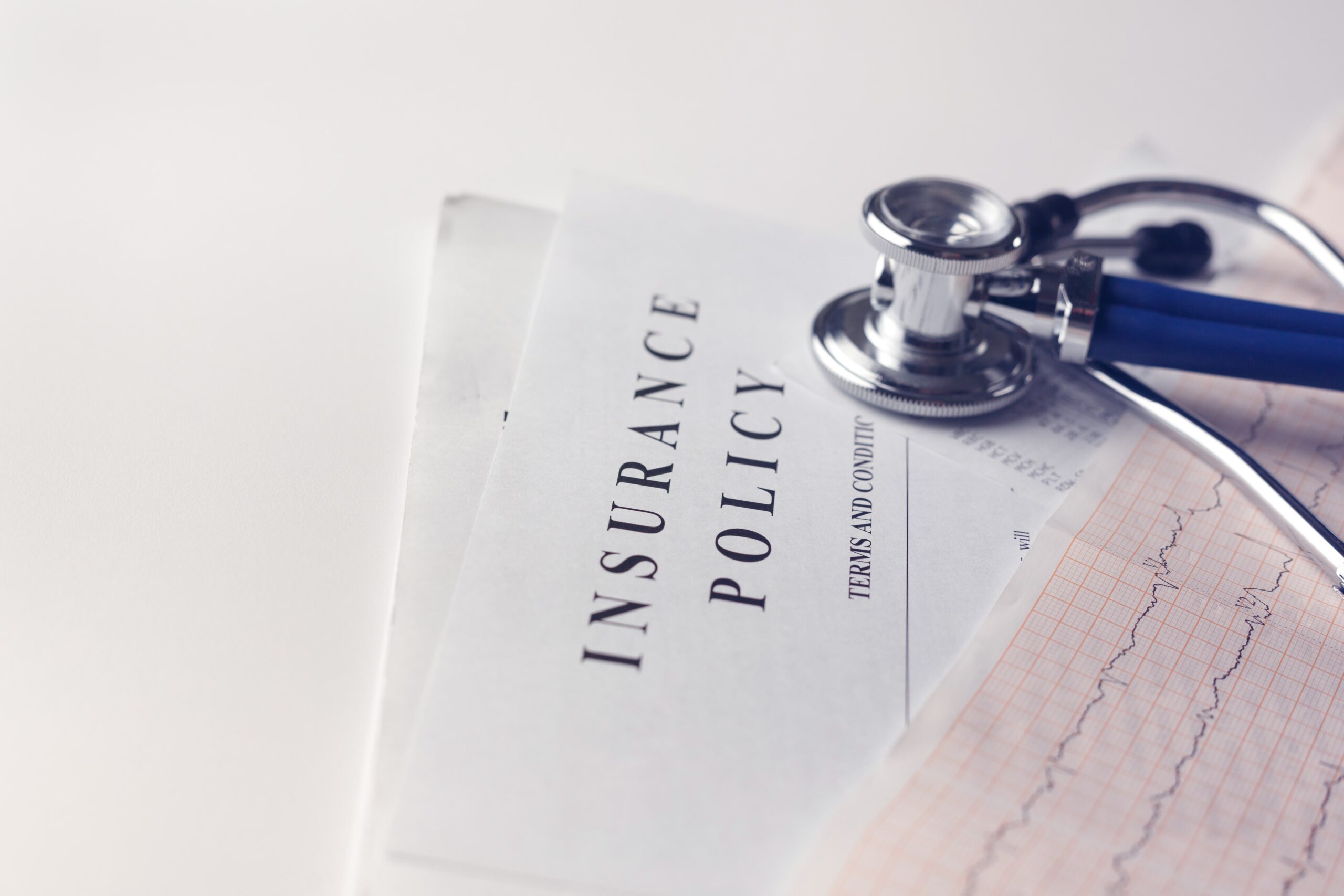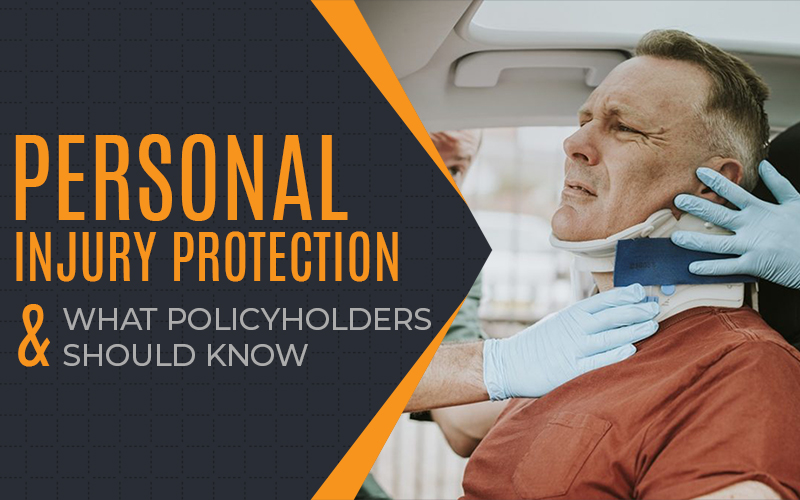What Is Personal Injury Protection? Everything Policyholders Need To Know
No-fault insurance or Personal Injury Protection (PIP) is part of a vehicle insurance plan covering the healthcare expenses incurred in case of an accident. It covers the medical costs for the passengers and policyholders. It also applies to passengers without health insurance.
Sometimes, health insurance covers additional expenses if the essential medical care expenses exceed the auto insurance policy’s coverage limits.
However, the policy only offers a specific amount per person. So, every individual gets a limited amount if several people suffer an accident.
No-fault states have personal injury protection insurance, and the requirements vary from one state to another. These states have an advantage. A person’s policy pays for their medical costs if they injure themselves in a vehicle accident, irrespective of who was at fault.
So, anybody with PIP car insurance can enjoy this perk even if the other driver has no insurance.
It usually offers payments for accident-related funeral expenses, child care, and lost income, apart from making medical care affordable. Some no-fault states provide medical payment coverage but do not cover the other costs due to low limits.
You Can Also Check Out: Automobile Insurance Information Guide
Is Personal Injury Protection Required?
Many people ask, do I need personal injury protection? How much should I get from the claim?
Yes, you must have PIP coverage if you live in a state that mandates it. If your health insurance covers injuries and rehabilitation resulting from an automobile accident, you may need to purchase a minimal amount of personal injury protection coverage.
If PIP coverage is optional in your region, review your health insurance to see how it covers expenses connected to car accidents and also your deductible and out-of-pocket maximums to help you decide.
What Does Personal Injury Protection Cover?
You can consult with your personal injury lawyer to understand the things your PIP covers. However, here is a brief look into these factors.
1. Medical Expenses: Your PIP auto insurance may cover your health insurance deductible apart from the medical bills for you and your passengers.
2. Survivor’s Loss: Your surviving dependents can get your lost income through PIP if you pass away in a car accident.
3. Funeral Expenses: PIP covers the expenses of cremation, burial, or funeral following a vehicle accident.
4. Work Loss: PIP coverage can help if you injured yourself in an accident that resulted in lost wages due to loss of work. It also applies to a self-employed individual who hires temporary workers for various work.
5. Essential Services: Your protection plan can pay for the services you would perform without injuries. It includes housecleaning and childcare.
Personal Injury Protection VS Bodily Injury
Most people confuse personal and bodily injury to be the same. However, they are different.
Personal injury is any injury you sustain during an accident, such as emotional, mental, or physical. On the other hand, bodily injury means only the physical injury your body suffers. And so, the coverage differs.
Personal injury protection coverage includes payment for injury-related rehabilitation and medical expenses, income loss, and burial and funeral expenses. Bodily injury liability only covers the costs for physical injuries.
If you or your loved one experiences an automobile accident, slipping or tripping, or any other accident that causes injuries, you must realize how personal injury and bodily injury differ. It will help you and your lawyer calculate the economic and non-economic damages and pursue financial compensation.

Which States are No-Fault Car Insurance Zones?
It depends on what you perceive as no-fault states. Ten states adhere to the no-fault car insurance policy where accident victims must first seek their own car insurance coverage. These states are:
- Utah
- North Dakota
- New York
- Minnesota
- Michigan
- Massachusetts
- Kentucky
- Kansan
- Hawaii
- Florida
Additionally, three states adhere to a hybrid or choice no-fault system. It means that a person chooses to be insured under a conventional liability-based or no-fault scheme when buying a car. These states are:
- Pennsylvania
- New Jersey
- District of Columbia
A few jurisdictions, such as Oregon and Delaware demand no-fault coverage as an add-on to your automobile insurance policy.
However, in these mandatory add-on states, your options for holding another motorist liable for your losses are often unrestricted after a crash.

Takeaway
If you have injured yourself in a car accident in a no-fault state and believe your claim qualifies you to go outside the no-fault system, talk to a professional personal injury attorney about your alternatives. Find out when you should hire a car accident lawyer. Using the tools on this page, you can also find a car accident lawyer in your area.
Useful Related Article: How Much Will You Get From Car Accident Settlement?
Schedule A Consultation With One Of Our Attorneys Now!
Tags In
-
$1,300,000.00
Auto v. Auto Personal Injury
-
$1,015,000.00
Elder Abuse
-
$825,000.00
Auto v. Auto personal injury
-
$825,000.00
Slip/Trip & Fall
-
$800,000.00
Truck Accident Personal Injury
-
$695,000.00
Industrial Personal Injury
-
$500,000.00
Drowning Personal Injury
-
$375,000.00
Elder Abuse
-
$350,000.00
Car Accident Personal Injury
-
$250,000.00
Auto Accident Personal Injury
-
$250,000.00
Truck Accident Personal Injury.
-
$250,000.00
Auto Accident Personal Injury
-
$250,000.00
Auto Accident Personal Injury
-
$230,000.00
Trip & Fall
-
$145,000.00
Auto Accident
-
$140,000.00
Personal Injury
-
$125,000.00
Bed Bug Personal Injury
-
$100,000.00
Car Accident Personal Injury
-
$100,000.00
Car Accident Personal Injury
-
$100,000.00
Car Accident Personal Injury
Natalie K
Mr. Stephen Mashney was my lawyer in a recent case. Throughout our discussions he identified all the possible outcomes in attempt to set my expectations. I recommend him for his tenacity and professionalism. I could not have forseen a better outcome. I highly recommend him… Read more “Natalie K”
Basil I
I used A1 Accident Lawyer when I had my auto accident and was very pleased with their top notch service. Mr. Mashney is a hands-on attorney who will return your calls and answer your emails promptly. His staff is very efficient and friendly. I highly… Read more “Basil I”
Evelyn C
Mr. Mashney of A1 Accident Lawyer a terrific attorney. I had to meet with Mr. Mashney regarding a construction issue regarding one of his clients. Mr. Mashney kept all his promises and the whole transaction went very smoothly. Mr. Mashney is very professional and I… Read more “Evelyn C”
Edna E
I had to deal with some legalities just recently and called up Sammy Mashney since he is just a few minutes away from my home. I have to say that I was very impressed with the customer service and quality of work he and his… Read more “Edna E”
White B
A1 Accident Lawyer is everything a law firm should be. They combine conscience with competence, principle with professionalism. When speaking Stephen Mashney you get the feeling that you are a person worthy of consideration and not just another client.”
Lyna N
Had a great experience with Mr. Mashney. He was very professional and gave me good advice. He took my concerns seriously and I appreciated him seeing me on such short notice.”
Yasser A
I strongly recommend the support of the A1 Accident Lawyer for both business and individual legal matters. within at least the past 14 years, I have never lost one case, even traffic tickets, thanks to the help of Mr. Mashney and his outstanding team. Hospitality,… Read more “Yasser A”
Fadi A
I don’t know where to start. Mr. Sami has been my Attorny for years. He is loyal, intelligent and wonderful in every aspect. He helped me and my family with our immigration status and kept his words on what he promised us. As long as… Read more “Fadi A”
Mike A
I would like to thank attorney Stephen Mashney for his exceptional work in handling my case. He and his staff were very friendly and efficient. They returned all my phone calls promptly. At the end, I was very happy with the outcome and I highly… Read more “Mike A”
Emmanuel V
I was a student in need, and Stephen resolved my problem. I was so concerned with the cost because I didn’t have any money. Out of the goodness of his heart, he didn’t charge me and even bought me lunch! Great guy and I TRUST… Read more “Emmanuel V”
Zainab E
A couple years ago I was in a car accident that was extremely life changing to the point where I had to leave my job and drop out of college for a couple of months. Natural instinct of getting in a car accident was to… Read more “Zainab E”
Cidney W
Good business, very satisfied, they always call and update you with concerns from your Case, very professional and honest”
Maria V
The best Law Office in Orange County. The staff it’s always cordial and very attentive with me all the time that I requested any information of my case. The Attorney Stephen Mashney I have the most memorable moments of cordially when for the first time… Read more “Maria V”
Adam J
Professional, helpful, honest. In the few times I have needed legal advice, the team here has gone through lengths to help me out and providing me with a full picture of the issue at hand. They have saved me money by advising me against certain… Read more “Adam J”
Sam A
A1 Accident Lawyer firm has been handling all my business legal matters since 1999. They set up my corporations, review my leases, and write up my contracts. They offer such diverse services. When my wife got in a car accident last year, we were so… Read more “Sam A”
Rusty H
Out of all the attorneys that i have had to use mr mashney is the best.when i had a problem with a renter his advice was spot on he has treated me well and did not try to get rich off me.i have recommended him… Read more “Rusty H”
Jasmina S
Mr. Mashney is the best! Definitely recommend him to anyone in need of legal help. He’s very honest and truly cares about his clients.”
Jad I
My license was suspended after I received a ticket for crossing a double yellow line on the freeway, being in the carpool by myself, and going over 65… ”
Andre A
Sam (Stephen) knows immigration laws, and the staff are very helpful and resourceful. I got a great value for the service, at a very reasonable fee – Mashney helped me submit my immigration form. The process was very smooth and went without a hitch (Thank… Read more “Andre A”
Araceli A
I have to say they are amazing. Extremely professional and helpful. I have always seen lawyers as people just out to get you for money, well this place showed me a lesson. They didn’t just do their job they went up and above the call… Read more “Araceli A”
Snehal K
Stephen and Sherie have helped me on multiple occasions with my minor legal issues. I’m grateful for their assistance.”
Nezar A
Picking a lawyer to represent you is extremely difficult. Fortunately for me, I was referred to A1 Accident Lawyer by a previous costumer of theirs. At first, being as particular as I usually am, I had my guard up with everything – making sure I… Read more “Nezar A”
April H
The A1 Accident Lawyer, did an excellent job with my case. Their team (specially Sherie) were extremely helpful, they answered all my questions & concerns. Which made the process easy. Will definitely recommend.”
Serennaa B
We came in regarding a judgment on my boyfriends credit and an order for garnishment we weren’t sure what to do I found this firm on yelp and saw good review which made me confident I had made the right choice! From the minute we… Read more “Serennaa B”
Melissa G
After I was rear-ended on the freeway and totaled my car, it was a real dilemma for me. The damn insurance company kept jerking me around and gave me false promises. I was so helpless and frustrated that I didn’t know what to do. My… Read more “Melissa G”
Berlin F
After getting into a car accident A1 Accident Lawyer helped me the whole way through. They kept me informed on my case and comfortable throughout the whole process. When it came down to my settlement I had great assistance from Aaron who made sure I… Read more “Berlin F”
Mike R
If you’ve been hurt in an accident and you are considering finding an injury claim lawyer to get any compensation you could be owed, you’ve come to the right place. A1 Accident Lawyer and his team will look after you and will give you all… Read more “Mike R”
Mohamed K
I have been looking for a legal consultation regarding a matter and i started looking online for an office to call to make an appointment. To begin with, the receptionist who answered my call was really professional and she took all info needed from me… Read more “Mohamed K”
Omar H
A1 Accident Lawyer helped me tremendously in the times I needed legal action taken. This firm has there priorities organized, and understand how important the client is. They treat their clients with the upmost respect, and fight pound for pound to make sure justice is… Read more “Omar H”
Tarek A
This lawyer is really trustworthy because he gave us the advice without knowing us. I really recommend him. He is an honest and smart lawyer. I came to him worrying that I was sued. He explained to me that I don’t have to worry about… Read more “Tarek A”
Byron C
Mr Mashney and his entire staff are the most professional and responsive team I have ever encountered in his fields of expertise! I retained his services in December 2010, and he was there for me every step of the way, until my case was completed,… Read more “Byron C”


